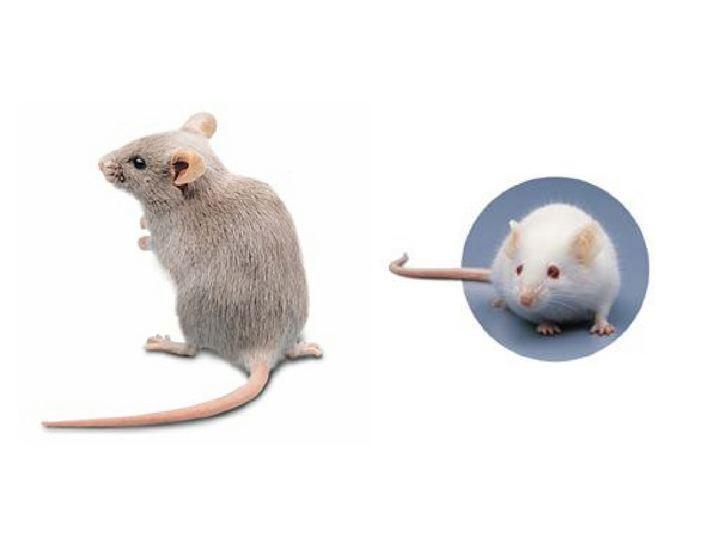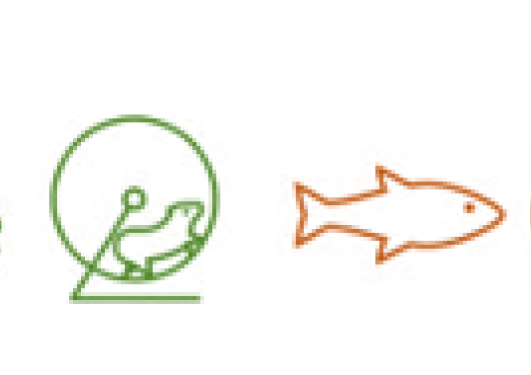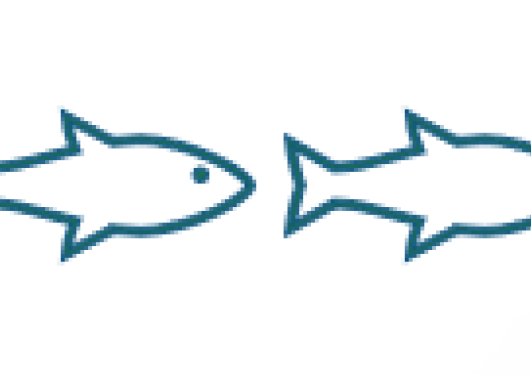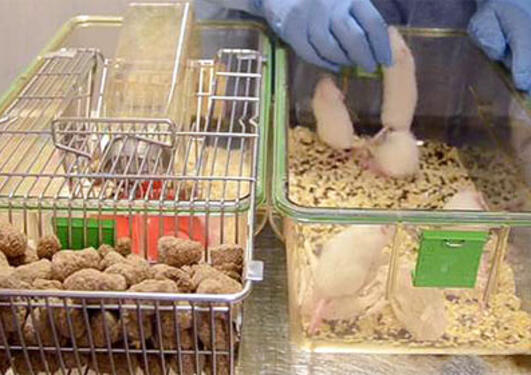Training in Laboratory Animal Science
All individuals involved in the use of animals in research must receive training in accordance with the Regulation on the Use of Animals in Research (Annex E). This training must be completed before planning or conducting experiments, caring for animals, or performing euthanasia. It includes both theoretical education and practical training. There is also a requirement that competence is maintained and documented through continuous practice and professional development.

Main content
Training in the Use of Animals in Research
The Norwegian Regulation on the Use of Animals in Research requires training based on the role a person has in animal experiments.
- Functions A, C, and D: Individuals performing procedures on animals must complete both theoretical and practical training.
- Function B: Individuals who design experiments must understand the procedures and their impact on the animals, but are not required to demonstrate practical skills.
The Animal Facility offers a comprehensive training program that includes:
- Theoretical courses
- Practical skills training
- Refresher courses
The training is available to students, staff, and external participants.
All individuals who need access to the Animal Facility at K1, University of Bergen (UiB), must document that training has been initiated.
To apply in FOTS (the Norwegian application and oversight system for animal experiments) or to participate in experiments, both theoretical and practical training must be completed and documented.
If you have relevant training from abroad, parts of it may be approved. In such cases, you must complete a self-study module on national regulations and pass a test.See the "Courses from Abroad" tab for more information.
Who needs training?
Training is mandatory for everyone involved in animal research—whether in planning, performing procedures, or caring for and euthanizing animals.
1. Planning and Designing Experiments (Function B)
Individuals responsible for planning and designing animal experiments must complete:
- CAREiN (for rodents, pigs, and model fish), or
- LAS301 + LAS303 (for fish),or equivalent training, depending on the species involved in the study.
2. Performing Procedures on Animals (Function A)
In addition to the courses listed above, individuals performing procedures must:
- Complete structured training
- Work under supervision while learning the relevant procedures
- Demonstrate proficiency before working independently
3. Euthanizing Animals (Function D)
Individuals responsible only for euthanizing animals must:
- Complete theoretical training equivalent to CAREiN or LAS301/303
- Receive supervised practical training in the euthanasia methods to be used
Maintaining Competence
All personnel involved in animal experiments must maintain and document their competence through continuous practice and professional development.
It is recommended to take a refresher course at least every five years.
The Animal Facility regularly offers refresher courses.See the "Refresher Courses" tab for more information.
Training Courses in Laboratory Animal Science
At the University of Bergen, we offer training in laboratory animal science through the courses CAREiN and the LAS course series.
These courses provide an interdisciplinary introduction to the scientific, ethical, and practical aspects of using animals in research. The aim is to promote ethical and humane use of animals, while ensuring the collection of informative, objective, and reproducible data.
Course Content
The courses cover topics such as:
- Relevant legislation and ethical principles
- Animal biology and behavior
- Environmental factors and their impact on animals
- Procedures and handling
- Experimental design and scientific methodology
Through the training, you will gain knowledge that can be applied in practice, for example:
- Planning your own animal experiments
- Evaluating and advising on others’ experimental plans
- Critically assessing the quality of animal studies
Courses and Descriptions
CAREiN: Laboratory animal science course for rodents, pigs, and model fish (theory for Functions A, B, and D)See UiB’s website for more information
LAS301 / LAS601: Theory and practice for fishCourse description: LAS301
LAS303 / LAS603: Practical training in fish experimentationCourse description: LAS303
Note: Students are expected to have basic knowledge of anatomy and physiology.
Teaching Format and Requirements
All courses include:
- Preparatory work (e-lectures and online materials)
- Knowledge tests
- In-person sessions
- Group assignments
- Final exam
You should expect to spend time on self-study, group work, and exam preparation both before and after the in-person sessions.
To pass the course, the following are required:
- Participation in all mandatory activities
- Passing the final exam
Planned course dates
LAS 301/601 (general module)
Next course fall 2026
Registration deadline August 1
LAS 303/603 (fish modules)
Next course spring neste kurs går våren 2027
Registration deadline February 1
LAS - Refresh course
- next course is planned week 8 2026
- Cost 4790 NOK
- Link to registration
CAREIN - for work with rodents, ogs and modefish
- Uke 34-44 høsten 2026
- Registration before August 1 2026
Registration
LAS courses:
- UiB students and PhD candidates must register via Studentweb within the usual deadlines for semester registration.
- It is possible for students and PhD candidates at other institutions of higher education in Norway, as well as persons affiliated with university hospitals, to apply for visiting scholar right to study, to follow these subjects - see The Faculty of Medicine’s information on guest students.
- For all other groups, we offer the Laboratory Animal Science courses through the Continous Education (EVU).
CAREiN:
Everyone who wants to follow CAREiN must apply for a space on the course. More information can be found on CAREIN’s own pages: CAREIN information.
Practical Training
The Animal Facility offers hands-on training in essential techniques for working with rodents. This training includes:
- Handling and restraint
- Blood sampling (vena saphena)
- Injection techniques
- Oral gavage
- Organ collection
This training is an important part of the competence requirements for individuals performing procedures on animals (Function A), and is conducted under the supervision of experienced staff.
NEXT PRACTICAL TRAINING SESSION IS PLANNED NOVEMBER 26-27 2025
Registration for CAREiN practical training
Extended Practical Training
In addition to basic techniques, the Animal Facility also offers training in:
- Setup and operation of gas anesthesia systems
- Sterile draping
- Aseptic techniques for surgery
This training is particularly relevant for projects involving surgical procedures or anesthesia and is provided under the supervision of qualified personnel.
Other Practical Training
Training beyond what is offered by the Animal Facility is usually provided by the individual research group or through external, specialized courses.
ECTS credits
Refresher Course
Everyone who has a course from before 1/7-2015 or for more than 5 years ago, or has been away from the laboratory animal field for a longer period should take a refresher course.
The refresher course consists of preparations in the form of self-studies and 1/2 day gathering.
The next refresher course will take place in week 8 2026.
Courses from Abroad
Individuals who have completed a FELASA-accredited or equivalent course abroad must complete additional training in Norwegian legislation and ethics in order to work at the Animal Facility – University of Bergen (UiB).
Approval of Previous Education
The chief veterinarian will assess and may approve parts of your previous education. In addition, you are required to:
- Complete a self-study module covering Norwegian regulations and ethics
- Pass a test to demonstrate your knowledge
How to Proceed
- Attach your course certificate(s)
- Send an email to: aurora.bronstad[a]uib.no



